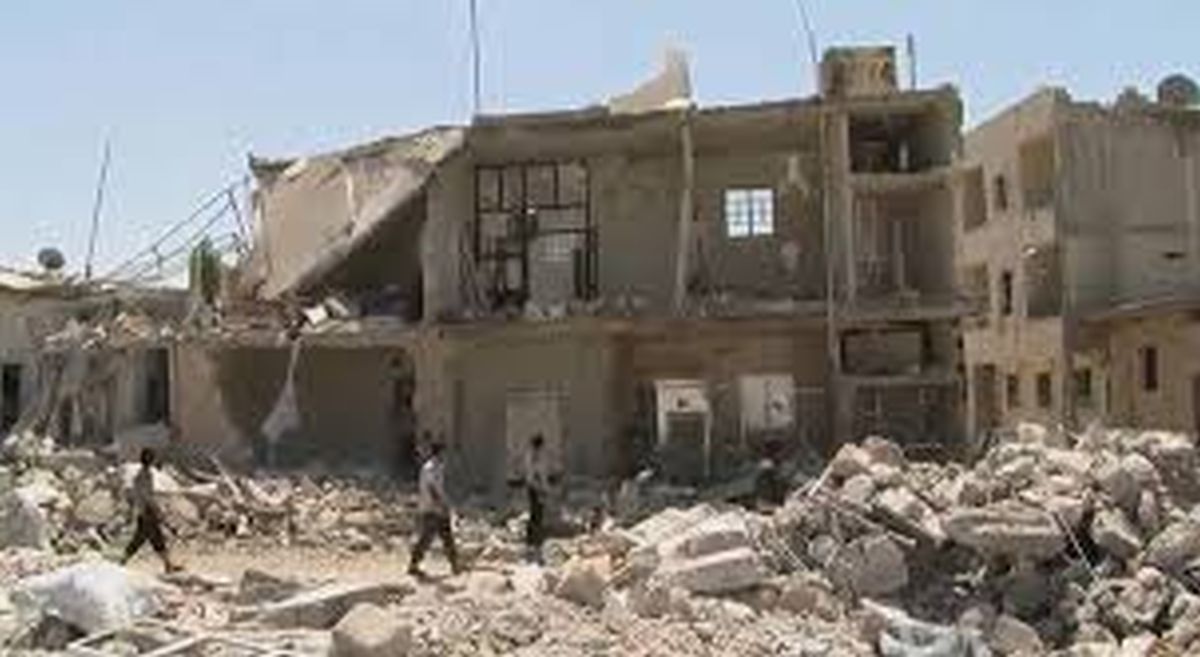Damascus, Syria, August 14 – Now that a cease-fire has taken effect between Israel and the Hamas-run Gaza Strip, international attention is returning to anything but the ongoing civil war in Syria.
The war, which has claimed more than 150,000 lives, has reached a strategic stalemate; loyalist air power continues to pound rebel positions and supply lines, while the opposition has gained political backing from players such as France, Britain and the Arab League. But worldwide appetite for actual intervention remains all but nonexistent, primarily because no one really cares.
“It’s one thing if Israel is involved, because everyone can get behind an anti-Zionist initiative,” said a frustrated rebel spokesman in Aleppo. “But as soon as you take Jews out of the equation, it doesn’t matter how many Muslims or Arabs die. Just look at Iraq,” he said, referring to a brutal insurgent campaign that gets mentioned in Western media outlets but generates no agitation for serious intervention of any sort.
Neighboring Turkey, though welcoming to rebels and refugees, is loath to actively intervene. A member of NATO, the country has requested that the alliance station batteries of Patriot missiles along its Syrian border to protect Turks and Syrians on its side of the frontier from Syrian loyalist air power. “That’s about all we have the stomach for,” said a Turkish diplomat speaking on condition of anonymity because of the sensitivity of the situation. “On second thought, to hell with the anonymity. I’m Mustafa Jarmuk, and I’ll say it outright: we really don’t give a damn about Syria. If Jews aren’t involved, the rest of the world really couldn’t give a crap.”
Egypt has its own challenges. On top of the efforts to broker the Israel-Hamas cease-fire, Cairo is now grappling with increasing unrest over a series of deadly accidents and popular frustration with the perceived lack of systemic or economic change since the ouster of Hosni Mubarak as President. Moreover, Egyptians are quite happy to see Syrians suffer, as the two countries have often vied for leadership in the Arab world. Any attempt to resolve the conflict would mean a quicker end to Syrian misery.
Iran openly supports the Assad regime, providing arms, logistical support, training and personnel, but only as a vehicle for attaining regional hegemony. The less the world pays attention to the Syrian war, the more effectively Iran can help Assad wipe out the insurgency, after which he would massacre rebels and their hometowns by the tens of thousands while the world looked away.
Western powers have no appetite for further intervention in the Middle East, following the mixed results of such operations in Iraq, Afghanistan and Libya. China and Russia have repeatedly stymied UN Security Council efforts to rein in Assad’s forces, preferring to see Syrians slaughter each other with impunity. Any attempt to intervene would jeopardize that goal.
“Syria has, what, twenty million people?” said Russian Foreign Minister Sergey Lavrov. “It should only take them another few decades to kill one another off completely.”
“We can wait,” he said.


